Because we sell peanuts in bulk, you can expect to see a wide variety of birds and other animals in your yard and feeders on a daily basis.
Whether you’re looking for bulk peanuts for squirrels or shelled peanuts for wild birds, we have everything you need when it comes to peanuts.
This makes it easier for you to ensure that there is always enough bulk peanuts for the animals.
When you order peanut pieces for birds through our website, you can choose from several different sizes.
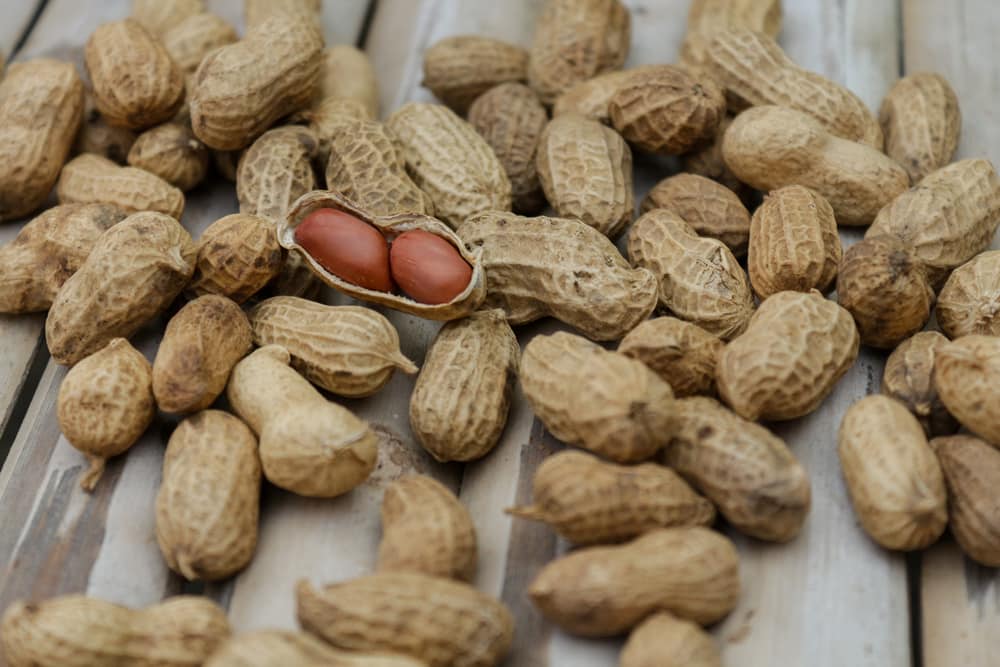
Because they come in different sizes, the items in each order may be as small or as large as the customer desires. We want to meet all your peanut splitting needs and be your primary supplier.
Peanuts are a tasty treat for a wide variety of birds, both domestic and wild, and are easy to make for your feathered friends.
Because of their high fat content, peanuts are an excellent source of energy and calories, especially during the colder months.
There are a few different ways that peanuts can be offered to birds.
Macaws, cuckoos, crows, and woodpeckers are just a few of the larger birds that enjoy eating shelled peanuts.
Peanut kernels are the only suitable food for smaller birds such as Dutch parrots, parakeets, Amazon parrots, etc.
Birds should only be fed raw peanuts, as flavored peanuts such as salted, smoked or seasoned peanuts may be dangerous to them. Raw peanuts are the only safe option.
Additionally, birds should not eat sweetened peanuts.
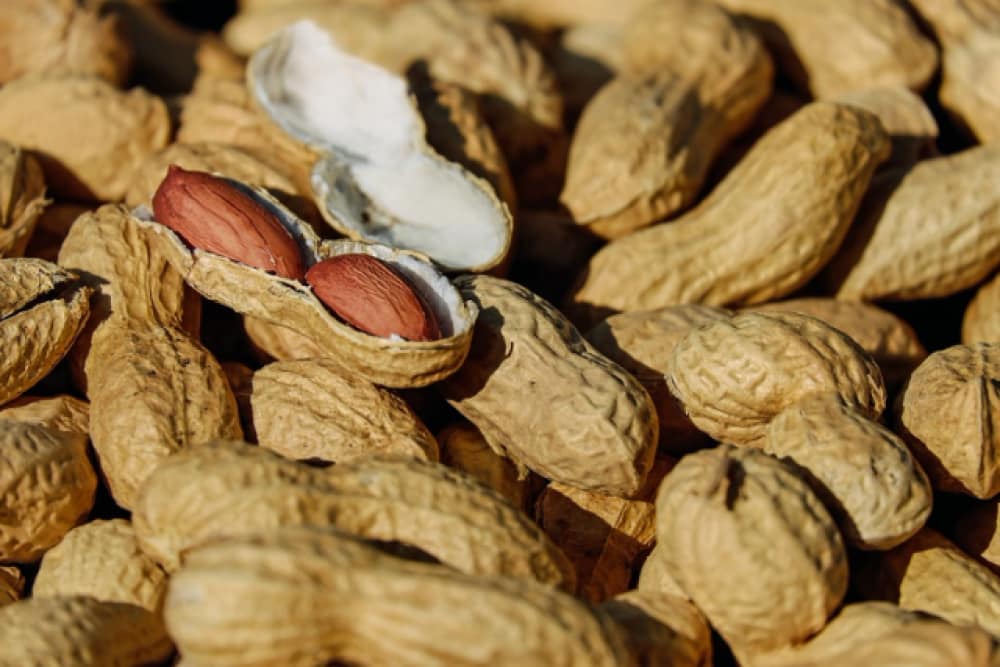
Likewise, baked goods with peanuts such as cookies, cakes, brownies, etc. should never be fed to birds.
Many backyard birds find peanuts a wonderful food source, plus they’re quick and easy to prepare.
Increasing the variety of bird species that visit your yard and increasing the appeal of your bird-friendly buffet will both increase by offering peanuts to local birds.
The amount of natural fat in peanuts is quite significant. All of the bird’s daily activities, including flying, tending the nest, caring for chicks, and singing, are made possible by the abundant energy provided by fat.
Foods that are high in fat, such as peanuts, are especially important during winter and during the cold season that occurs in spring and fall.
When temperatures drop, it is important for birds to eat a higher calorie diet to maintain body heat.
On the other hand, peanuts are an important component of a balanced diet for birds because, in addition to fiber, they also contain calcium, potassium, and other essential minerals.
These nuts have a longer shelf life than other high-fat foods such as suet because they have a lower water activity level. Plus, they’re reasonably priced for budget-conscious bird watchers.
There are several ways to provide peanuts to the hungry birds in your garden. Nuts that are still fully in their shells are good food for larger birds such as jays, crows, grekels and greater woodpeckers.
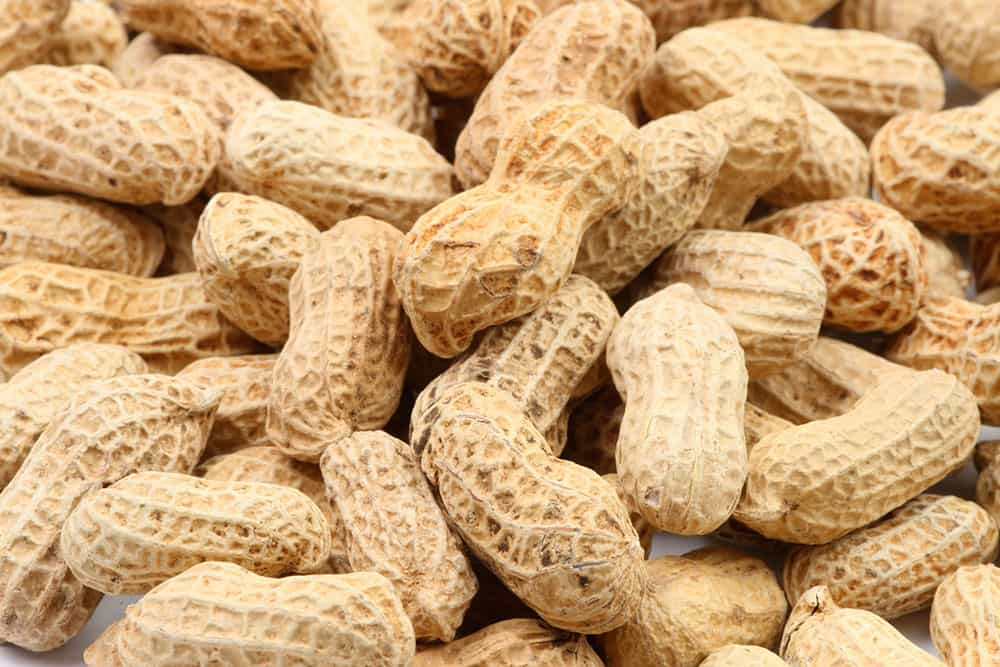
Pre-divided peanut hearts or chips are more appetizing foods for smaller birds such as chickadees and crabs.
These bite-sized pieces are more manageable for an average budget.
However, it is not unheard of for a small bird to make off with a huge reward, such as a whole peanut, then carry it to a nearby limb, where it will split open and feed itself on the nut’s flesh. Even birds will eat peanut butter if you feed them!
Feathered visitors will love both the crispy and smooth varieties equally. Attracting birds to the yard is easy by providing peanuts for them to eat.
Spreading out a handful of nuts for birds to find is as easy as sprinkling or scattering them on the ground.
There are many different types of peanut feeders, including trays and containers, as well as specialized peanut feeders that have mesh or larger holes that can accommodate different types of peanuts.
Peanut butter or peanut-flavored shavings may also be spread directly on trees, offered in traditional whistle feeders, or used to fill holes in feeders that look like logs. All these methods are effective.
Even though peanuts, especially whole peanuts still in their shells, are a longer-lasting food option, they can still spoil, mold, or go bad within days.
This is especially true in areas that are very hot and/or humid. It is to everyone’s advantage to get only a few peanuts at a time, and special care should be taken to keep them dry in wet weather.
Backyard birds aren’t the only animals that love peanuts. Squirrels, raccoons and chipmunks will too.
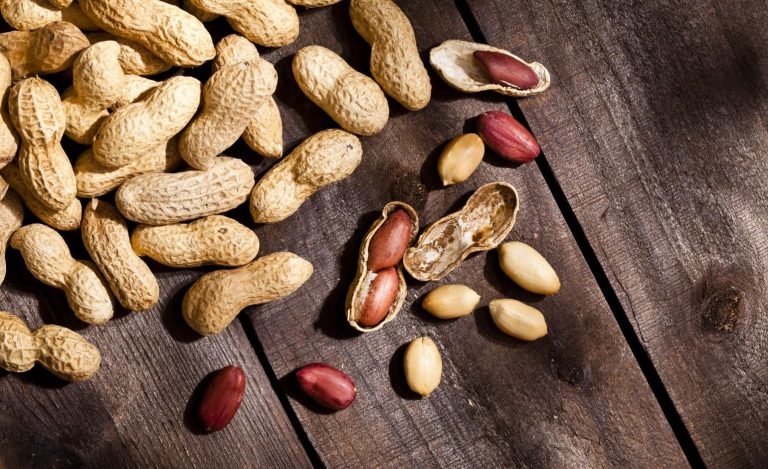
Be careful, use holes and other methods to prevent nut thieves from grabbing all the nuts before the birds have a chance to enjoy the tasty reward.
Peanuts in bulk
Those who want to buy peanuts in large quantities but are unable to buy in person for any reason, can buy and prepare this product in person.
When you go to the store to buy peanuts, you can choose from different packages in different sizes.
According to the latest announcement made on the retail websites, the market price of peanuts has now reached its highest level.
The price of peanuts often goes up and down. It can also be reached in the market through face-to-face or face-to-face visits (via phone or internet), respectively.
To begin with, we would like to point out that despite the common belief that peanuts belong to the nut family, they are actually classified as legumes.
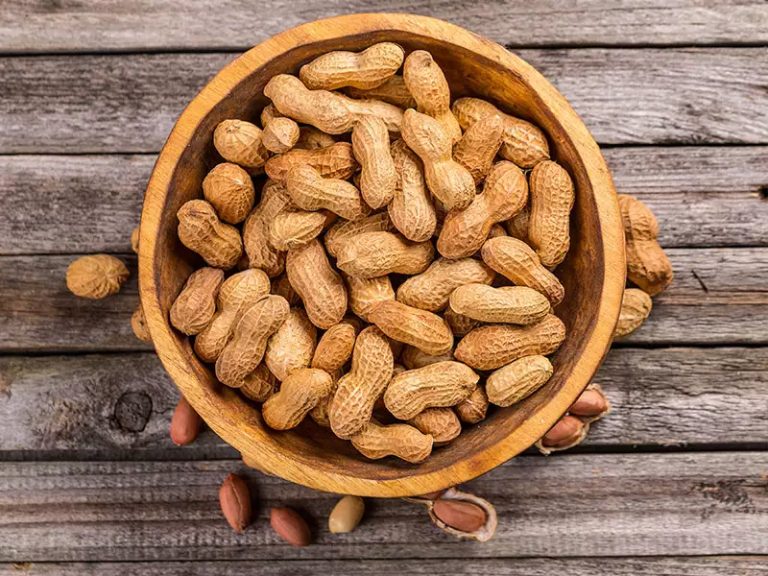
The general public has the impression that peanuts are nuts. Underground cultivation is required at every stage of production of this product.
Peanuts are rich in vitamins such as calcium, iron, protein, potassium, vitamin B6 and magnesium. In addition, peanuts contain omega-6 fatty acids and dietary fiber.
It is among the things that reduce the possibility of getting cancer. Cashews have various health benefits, including the ability to protect against gallstones, reduce the risk of weight gain, and improve bone health.
After processing and packaging, product distribution to final consumers is the responsibility of distribution and sales centers.
Several well-known distribution and distribution centers across the country handle the wholesale business of almonds and nut products, including cashews, peanuts, and other types of almonds.











Your comment submitted.